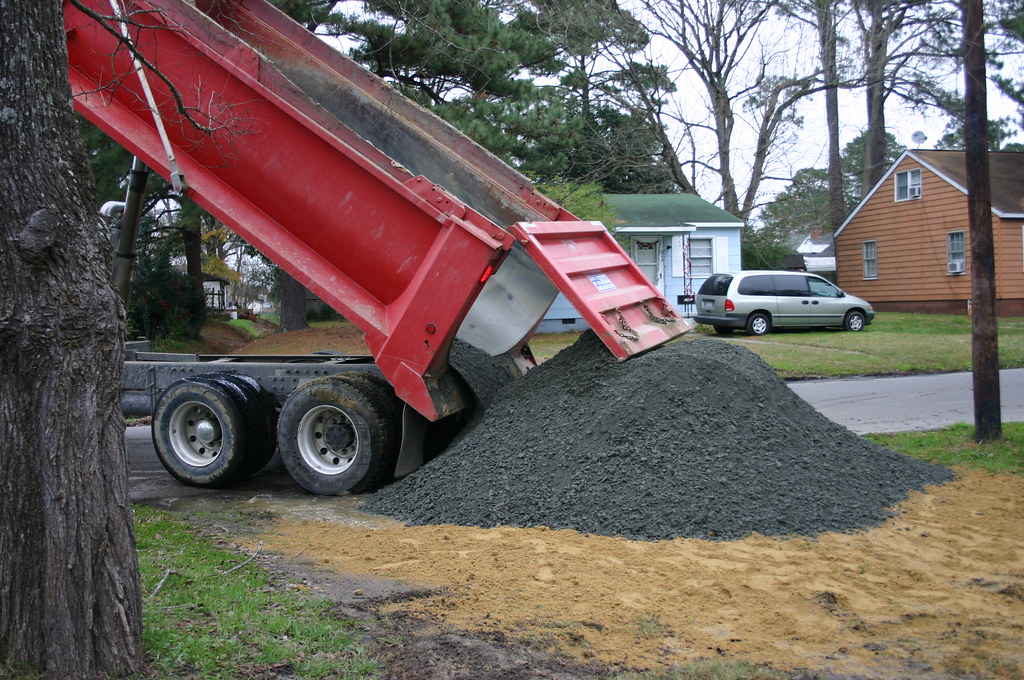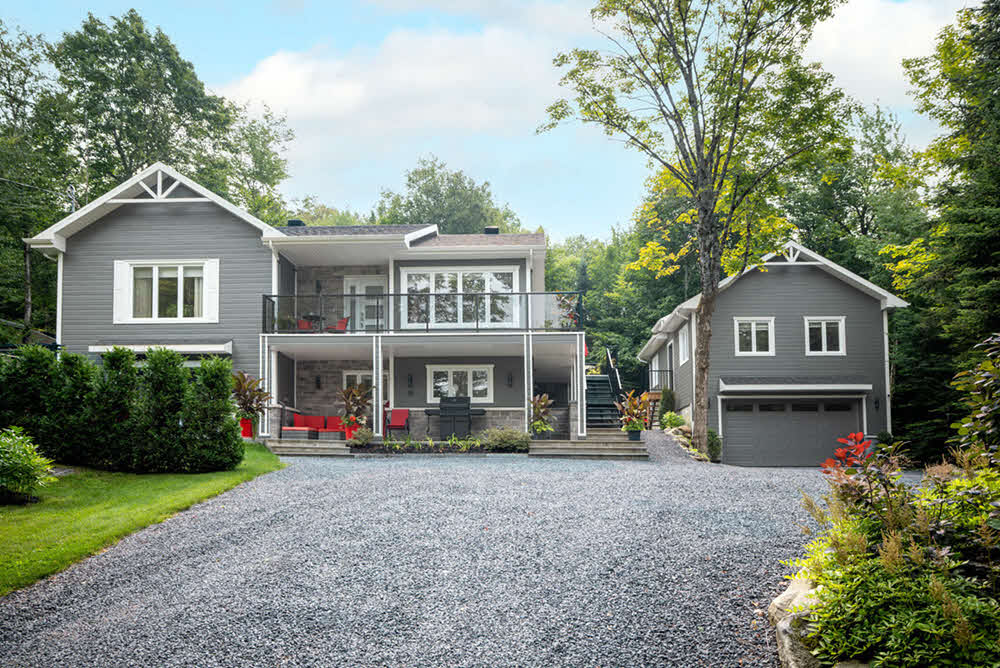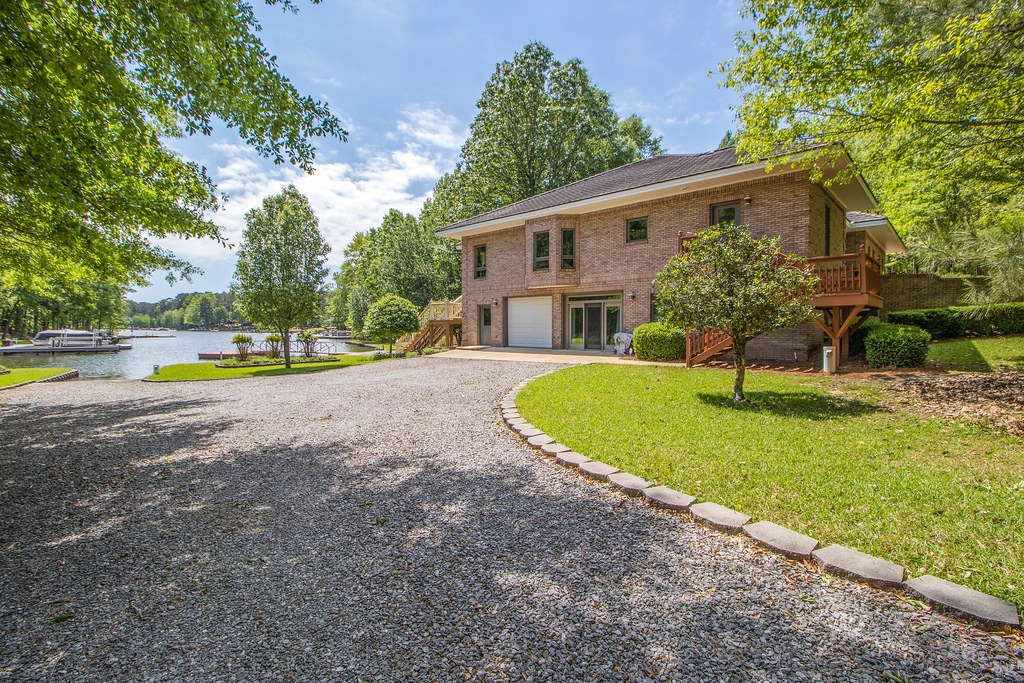Gravel Drivewaysin Troy MI
Expert Gravel Driveway Installation for Lasting Durability
We Are Locally Owned & Operated For Over 37 Years
Contact Us Today!
We Serve Businesses In And Around The Following Cities:
About Gravel Driveways
Understanding the Importance of a Gravel Driveway in Commercial Properties
Throughout the city of Troy, an increasing number of commercial properties have been turning heads with their impressive, functional, and aesthetically pleasing gravel driveways. The willingness of businesses to prioritize not only the function but the visual appeal of their establishments goes a long way in boosting their image.
Gravel provides a thrilling alternative to the common concrete driveways you’ll likely come across. With this in mind, we’ll traverse through the benefits of gravels and dive deep into the intricacies of installing, maintaining, and effectively utilizing a gravel driveway. Not to mention, we’ll also shed light on the various costs associated with laying a gravel driveway and how leveraging the services of professional gravel driveway contractors like D&J Contracting could save time, money, and stress in the long run.
The Intricacies and Advantages of a Gravel Driveway
With the numerous types of driveways available today, you might wonder, why opt for gravel? The benefits are wide-ranging and can significantly influence the outlook of a commercial property. A pea gravel driveway, for instance, adds an attractive, elegant touch to a property, and is versatile enough to fit a range of landscape designs. Whether it’s a simple edged gravel driveway that defines the entryway or a modern gravel driveway that breathes life into an establishment, the aesthetic appeal cannot be overstated.
Apart from aesthetics, the cost-value proposition is another significant advantage of gravel driveways. Analyzing the average cost of gravel driveway installations compared to other alternatives reveals that they are highly affordable, without compromising on durability and functionality.
Serviceability is another upside. Problems such as potholes, often associated with asphalt driveways, can simply be taken care of by refilling the area with gravel – a relatively inexpensive solution. This is why many businesses consider the services of capable gravel driveway contractors like D&J Contracting when they need work on their driveway, whether it’s for installing a black gravel driveway that adds a touch of sophistication or repairing a gravel driveway that has seen better days.
Embarking on a Gravel Driveway Project
Understanding the entire process of installing a gravel driveway is crucial to achieving a great result. The process typically involves initial groundwork, laying the gravel, grading (leveling), and compacting the gravel for a solid finish.
Engaging the services of a proficient team like D&J Contracting ensures that the entire process is handled professionally and to perfection. Their team uses the right equipment and techniques for gravel driveway grading, eliminating the chances of improper leveling, which can lead to water pooling. Therefore, the value of using a professional gravel driveway company cannot be overemphasized.
Gravel Driveway Costs and Considerations
The overall gravel driveway cost varies significantly and is typically dependent on factors such as size, type and quantity of gravel required, geographical location, and labor costs. Despite these variables, the average cost to gravel a driveway is generally much lower compared to other driveway types.
While considering the cost of installing a gravel driveway, it’s also essential to factor in the cost implications of maintenance. This involves habitual raking to maintain its look, refilling to fix potholes, grading for proper leveling, and adding a new layer of gravel periodically.
When assessing these considerations, employing a reliable team of gravel driveway contractors near me would be invaluable in providing a detailed cost breakdown. Working with contractors such as D&J Contracting would provide an accurate cost estimate and guide businesses on the best approach regarding their gravel driveway installations.
Why Choose D&J Contracting for Your Gravel Driveway?
Aside the benefits of a gravel driveway, the importance of seeking professional guidance and expertise to execute your project cannot be overstated. D&J Contracting provides transparent, affordable, and top-quality gravel driveway services, using their expertise to guide you through the entire process, from design to installation and maintenance.
With many positive reviews and recommendations from clients in the city of Troy, D&J Contracting stands out. Their attention to detail, commitment to excellence, and customer-focused approach all contribute to their reputation as a reliable partner for those seeking to install or maintain gravel driveways.
So, whether you’re planning on embarking on a new gravel driveway project, seeking to fix up your current driveway, or simply exploring the available options, remember that a gravel driveway is an affordable, stylish, and durable solution that requires relatively low maintenance. And needless to say, contracting experts like D&J Contracting help keep your project stress-free and ensure that you get the most value out of your investment.
Gravel Driveways Gallery


Call Us Today to receive your Free Quote for
Gravel Driveway in Troy
Serving: Troy, Michigan

About Troy, Michigan
The earliest recorded purchases of land in what was known as Troy Township occurred in 1819. A couple of years later, a settlement known as Troy Corners was established due to Johnson Niles buying 160 acres in the region. The area is currently the north-central area of Troy. In 1827 Troy Township was established. In 1955, Troy was officially incorporated primarily as a strategy for preventing border cities from taking more land. This also helped to establish more robust city services for Troy residents, whose numbers increased rapidly during this time due to Detroiters fleeing the city for the surrounding suburbs.
It was named after Troy, New York and the ancient city of Troy as many of the early settlers, as in much of Michigan, originated from New York.
According to the United States Census Bureau, the city has a total area of 33.64 square miles (87.13 km), of which 33.47 square miles (86.69 km) is land and 0.17 square miles (0.44 km) (0.51%) is water.
| Census | Pop. | Note | %± |
|---|---|---|---|
| 1960 | 19,402 | — | |
| 1970 | 39,419 | 103.2% | |
| 1980 | 67,102 | 70.2% | |
| 1990 | 72,884 | 8.6% | |
| 2000 | 80,959 | 11.1% | |
| 2010 | 80,980 | 0.0% | |
| 2020 | 87,294 | 7.8% | |
| 2023 (est.) | 87,339 | 0.1% | |
| U.S. Decennial Census 2018 Estimate |
|||
According to a 2018 estimate, the median income for a household in the city was $96,864, and the median income for a family was $113,640. Males had a median income of $72,005 versus $52,365 for females. The per capita income for the city was $46,664. About 5.1% of families and 7.2% of the population were below the poverty line, including 6.7% of those under age 18 and 6.1% of those age 65 or over.
As of the census of 2020, there were 87,294 people, 33,822 households, and 24,300 families living in the city. The population density was 2,609.9 inhabitants per square mile (1,007.7/km). There were 34,953 housing units at an average density of 1,044.9 inhabitants per square mile (403.4/km). The racial makeup of the city was 62.2% White, 4.0% African American, 0% Native American, 27.3% Asian, 1.2% from other races, and 5.1% from two or more races. Hispanic or Latino residents of any race were 2.2% of the population.
There were 33,822 households, of which 35.4% had children under the age of 18 living with them, 60.1% were married couples living together, 8.3% had a female householder with no husband present, 3.4% had a male householder with no wife present, and 28.2% were non-families. 23.2% of all households were made up of individuals, and 10.1% had someone living alone who was 65 years of age or older. The average household size was 2.56 and the average family size was 3.05.
The median age in the city was 43.9 years. 20.7% of residents were under the age of 18; 8.8% were between the ages of 18 and 24; 32% were from 25 to 44; 28.6% were from 45 to 64; and 19.7% were 65 years of age or older. The gender makeup of the city was 50.5% male and 49.5% female.
| Race / Ethnicity (NH = Non-Hispanic) | Pop 2000 | Pop 2010 | Pop 2020 | % 2000 | % 2010 | % 2020 |
|---|---|---|---|---|---|---|
| White alone (NH) | 65,809 | 58,869 | 53,793 | 81.29% | 72.70% | 61.62% |
| Black or African American alone (NH) | 1,678 | 3,210 | 3,422 | 2.07% | 3.96% | 3.92% |
| Native American or Alaska Native alone (NH) | 105 | 124 | 108 | 0.13% | 0.15% | 0.12% |
| Asian alone (NH) | 10,713 | 15,439 | 23,788 | 13.23% | 19.07% | 27.25% |
| Pacific Islander alone (NH) | 18 | 1 | 9 | 0.02% | 0.00% | 0.01% |
| Other race alone (NH) | 79 | 125 | 312 | 0.10% | 0.15% | 0.36% |
| Mixed race or Multiracial (NH) | 1,373 | 1,502 | 2,908 | 1.70% | 1.85% | 3.33% |
| Hispanic or Latino (any race) | 1,184 | 1,710 | 2,954 | 1.46% | 2.11% | 3.38% |
| Total | 80,959 | 80,980 | 87,294 | 100.00% | 100.00% | 100.00% |
As of the census of 2010, there were 80,980 people, 30,703 households, and 22,443 families living in the city. The population density was 2,419.5 inhabitants per square mile (934.2/km). There were 32,907 housing units at an average density of 983.2 per square mile (379.6/km). The racial makeup of the city was 74.1% White, 4.0% African American, 0.2% Native American, 19.1% Asian, 0.6% from other races, and 2.0% from two or more races. Hispanic or Latino residents of any race were 2.1% of the population.
There were 30,703 households, of which 34.7% had children under the age of 18 living with them, 62.8% were married couples living together, 7.3% had a female householder with no husband present, 3.0% had a male householder with no wife present, and 26.9% were non-families. 23.4% of all households were made up of individuals, and 9.6% had someone living alone who was 65 years of age or older. The average household size was 2.63 and the average family size was 3.14.
The median age in the city was 41.8 years. 23.8% of residents were under the age of 18; 6.7% were between the ages of 18 and 24; 24% were from 25 to 44; 31.6% were from 45 to 64; and 13.8% were 65 years of age or older. The gender makeup of the city was 49.3% male and 50.7% female.
From the census of 2000, there were 80,959 people, 30,018 households, and 21,883 families living in the city. The population density was 2,413.9 inhabitants per square mile (932.0/km). There were 30,872 housing units at an average density of 920.5 per square mile (355.4/km). The racial makeup of the city was 82.30% White, 2.09% African American, 0.15% Native American, 13.25% Asian, 0.02% Pacific Islander, 0.36% from other races, and 1.82% from two or more races. 1.46% of the population was Hispanic or Latino of any race.
There were 30,018 households, out of which 36.9% had children under the age of 18 living with them, 64.5% were married couples living together, 6.0% had a female householder with no husband present, and 27.1% were non-families. 22.8% of all households were made up of individuals, and 7.8% had someone living alone who was 65 years of age or older. The average household size was 2.69 and the average family size was 3.23.
In the city 26.2% of the population was under the age of 18, 6.7% from 18 to 24, 29.8% from 25 to 44, 27.1% from 45 to 64, and 10.2% who were 65 years of age or older. The median age was 38 years. For every 100 females, there were 98.1 males. For every 100 females age 18 and over, there were 94.8 males.
From 1990 to 2000, of all of the municipalities in Oakland, Wayne, and Macomb counties, Troy had the highest numeric growth in the Asian population. It had 4,932 Asians according to the 1990 U.S. Census and 10,730 according to the 2000 U.S. Census, an increase of 5,798. The increase gave Troy the largest Asian-American population in the tri-county area, surpassing that of Detroit.
Troy uses the council–manager form of government, and thus is governed by a city council consisting of a mayor and six council members. The current mayor is Ethan Baker, who was elected to a four-year term on November 5, 2019. The city council appoints a City Manager, who manages the day-to-day operations of the city.
The City of Troy and City of Clawson on its southern border compose Michigan’s 41st District for State Representative. The district is currently represented by Padma Kuppa in the State House since 2019, and in the state Senate by Mallory McMorrow, since 2019. The district was previously represented in the State House by Martin Howrylak since 2013, and in the state Senate by Marty Knollenberg, since 2015. On the national level, Troy was part of the 9th district, represented by Joe Knollenberg from 1993 to 2009 and Gary Peters, who defeated Knollenberg in a highly publicized race in November 2008. Nationally, Troy is part of the 11th district, held by Democrat Haley Stevens.
Troy is the location of Walsh College, a business school, as well as branches of the University of Phoenix, Northwood University, Central Michigan University, Spring Arbor University, International Academy of Design and Technology, and Michigan State University.
There are seven school districts serving Troy; however, Troy School District serves the majority of the city limits. The district has multiple elementary schools, four middle schools, and two zoned high schools: Troy High School and Athens High School.
Three school districts have sizable portions of territory in Troy and operate at least one elementary school within the city: Avondale School District, in the north and northwestmost portion of the city; Birmingham City School District, in the southwestmost portion; and Warren Consolidated Schools, in the southeast, which operates Susick Elementary within the city. In addition, two other school districts are located in part in Troy but have no schools within the city limits: Bloomfield Hills School District, with a portion of the northwest part of the city, and Royal Oak School District, which has a very small portion of the southern part of the city. Finally, a small area of commercial property also in the south lies within the borders of Lamphere Public Schools
The Troy School District also hosts the eastern campus of the International Academy. Private schools include Bethany Christian School, Brookfield Academy, Oakland Children’s Academy, St. Mark Christian Academy and Troy Adventist Academy.
Call Us Today to receive your Free Quote for
Gravel Driveway in Troy
Related Services in Troy, Michigan
We Serve Businesses In The Following Zip Codes:
48007, 48015, 48021, 48026, 48035, 48036, 48038, 48042, 48043, 48044, 48045, 48046, 48047, 48048, 48050, 48051, 48066, 48071, 48080, 48081, 48082, 48083, 48084, 48085, 48088, 48089, 48090, 48091, 48092, 48093, 48098, 48099, 48225, 48230, 48236, 48310, 48311, 48312, 48313, 48314, 48315, 48316, 48317, 48318, 48397